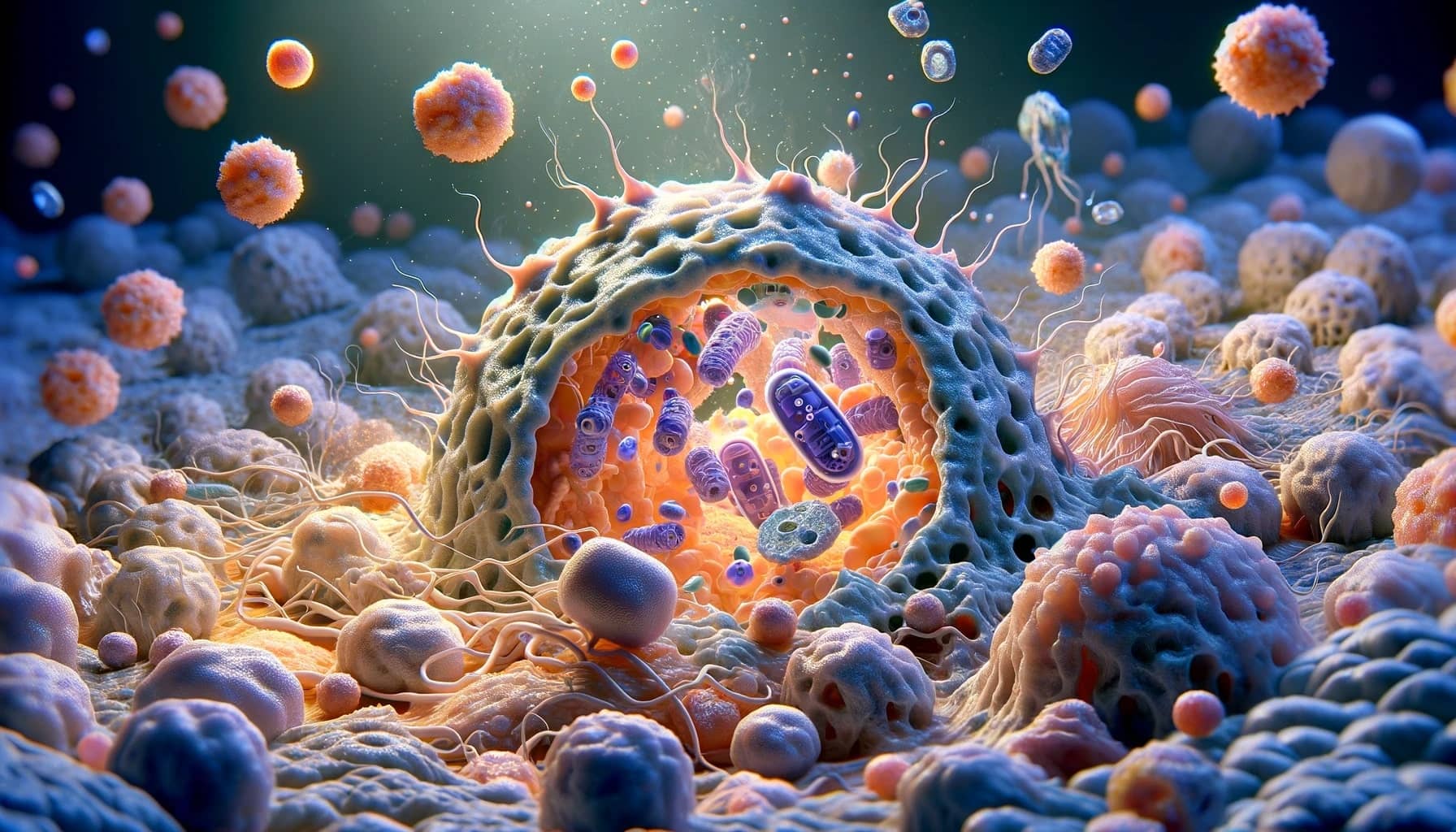
Clearing the Clutter: How Autophagy Helps Us Age Better
Autophagy, meaning “self-eating,” acts like a cleanup crew in our cells. It plays a crucial role in keeping our cells tidy and functioning well, significantly impacting aging and longevity. In autophagy, cells actively break down and recycle unnecessary or damaged components, such as worn-out mitochondria, damaged proteins, and harmful germs.
Understanding Autophagy
Here’s how it works: The cell wraps up the junk it wants to get rid of in a bubble called an autophagosome. This bubble then joins with a lysosome, which is like a tiny stomach filled with enzymes that break down the contents. This cleanup is essential for getting rid of broken parts and bad proteins. But as we get older, this system doesn’t work as well, leading to more junk piling up in our cells and making them not work properly.
What Happens When Autophagy Slows Down
With age, our cells produce less of the components necessary for autophagy, like proteins ATG5 and ATG7. This reduction results in more cellular waste and challenges the body’s ability to manage inflammation and fend off infections. Research indicates that hindering autophagy can accelerate aging, while enhancing it can reduce inflammation and may even reverse some signs of aging.
This decrease in autophagy links to numerous aging-related diseases, such as cardiovascular disorders, neurological conditions, and pulmonary issues, often resembling accelerated aging in the body.
Boosting Autophagy for Better Aging
A wealth of research shows that enhancing autophagy can help us maintain better health and live longer lives. For instance, improving autophagy in certain cells of fruit flies extends their lifespan. In mice, genetically enhancing autophagy leads to improved health, better metabolism, and extended longevity.
A notable example is spermidine, a natural compound found in foods like aged cheese and soybeans. Administering spermidine to mice enhances autophagy in various organs, extends their lifespan, and maintains youthful heart function. However, these benefits only occur if autophagy is active – blocking autophagy negates these positive effects.
Autophagy in Medicine and Future Research
Medical researchers are also turning their attention to autophagy. For example, NAD+ precursors, which support a specific type of autophagy called mitophagy, are under investigation for preventing skin cancer, improving insulin response, and treating Parkinson’s disease. Another compound, urolithin A, has shown promise in strengthening muscles and reducing inflammation in humans.
In summary, autophagy is vitally important for maintaining cellular health, especially as we age. Enhancing autophagy could be a key strategy for healthier aging, combating age-related diseases, and improving our life quality as we grow older. The ongoing research in this field is exciting and may pave new ways to address aging at the cellular level.
